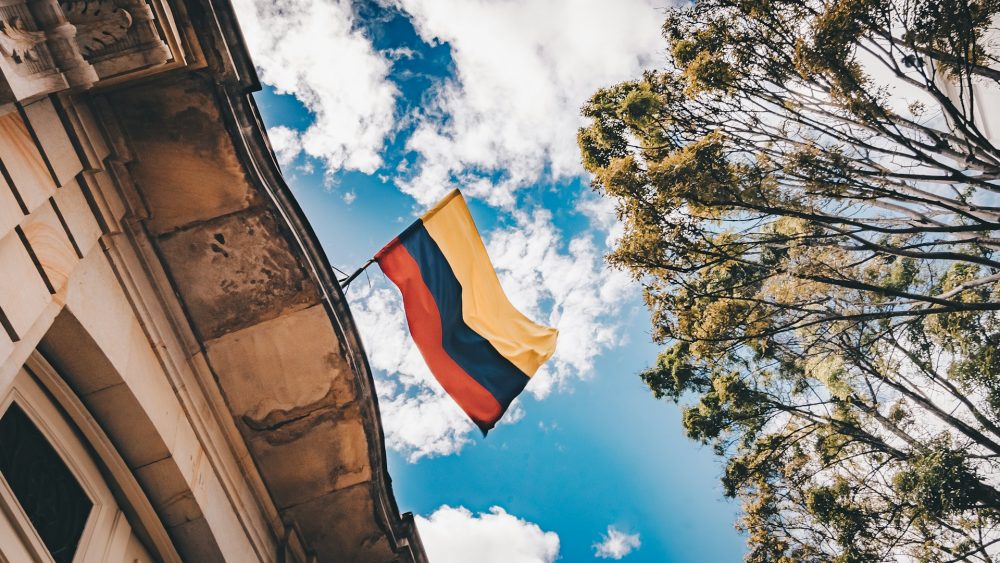Africa
The unique challenges that African e-commerce providers face
The potential of e-commerce in Africa is huge but there are also challenges to overcome. Online commerce companies like Jumia are struggling with lack of consumer confidence, poor consumer protection, poor digital and physical infrastructure, weak purchasing power. While “Amazon of Africa,” as Jumia is also called faces problems, China’s largest online retailer Alibaba is entering the market.

2019 was the year in which online commerce had its big breakthrough in Africa. In April, Jumia went public in New York. Founded in Nigeria, the company specializes in online trading in Africa and operates in over ten African countries. The African market offers great potential. “Compared to Europe, where 60 to 80% of the population already shop online, the average in Africa is less than 5%,” said Torbjörn Fredriksson. He heads the e-commerce and digital economy department at the United Nations Conference on Trade and Development (UNCTAD).
Already after the first trading day on the stock exchange, Jumia’s share price is 75% above the issue price. At times, a share costs just under $50. But half a year later, the euphoria is over. The share price of the “Amazon of Africa,” as Jumia is also called, is now less than $6.
Born2Invest brings you the latest business news from around the world and across the spectrum of the trusted global network. Keep up to date with the latest stories, and content on a whole range of topics, from an African perspective, business to finance, industries, biotech and much more.
Bad roads, no house numbers
In November, the company withdrew from Tanzania and Cameroon, and in December also from Rwanda. Observers expected Jumia to write the biggest loss in the company’s history in 2019.
According to industry insiders, Jumia is struggling with well-known hurdles to online commerce in Africa. Lack of consumer confidence, poor consumer protection, poor digital and physical infrastructure, weak purchasing power.
The payment systems have also not yet been designed for online trading, says Fredriksson. For example, Africa is known for mobile paying, i.e. payment by mobile phone or smartphone. But so far, users have mainly sent money from person to person. According to Fredriksson, the system has not yet been adapted for paying for goods.
In addition, there are complicated customs procedures and the fact that many people, especially in rural areas, live in houses without house numbers or street names and have no address, explained Alastair Tempest, the Managing Director of Ecommerce Forum Africa. That is a pan-African association dedicated to promoting online commerce in Africa. All this means that merchants will not be able to rely on existing structures as they do in Europe, said Tempest. “The platforms themselves must invest in building them up and remedying shortcomings in the economic system,” said Fredriksson.
Opportunity or danger for Africa?
While Africa’s e-commerce pioneer Jumia is stumbling, China’s largest online retailer Alibaba is entering the market. After founding a digital trading center in Rwanda in 2018, it opened another regional center of the Electronic World Trade Platform in Ethiopia, in November. A kind of digital international marketplace for goods and financial products.
With this initiative, the Chinese e-commerce giant wants to ensure that “small and medium-sized enterprises benefit more from globalization” – preferably, of course, on the company’s own platforms.
__
(Featured image by Andrew Neel via Unsplash)
DISCLAIMER: This article was written by a third party contributor and does not reflect the opinion of Born2Invest, its management, staff or its associates. Please review our disclaimer for more information.
This article may include forward-looking statements. These forward-looking statements generally are identified by the words “believe,” “project,” “estimate,” “become,” “plan,” “will,” and similar expressions. These forward-looking statements involve known and unknown risks as well as uncertainties, including those discussed in the following cautionary statements and elsewhere in this article and on this site. Although the Company may believe that its expectations are based on reasonable assumptions, the actual results that the Company may achieve may differ materially from any forward-looking statements, which reflect the opinions of the management of the Company only as of the date hereof. Additionally, please make sure to read these important disclosures.
First published in DW, a third-party contributor translated and adapted the article from the original. In case of discrepancy, the original will prevail.
Although we made reasonable efforts to provide accurate translations, some parts may be incorrect. Born2Invest assumes no responsibility for errors, omissions or ambiguities in the translations provided on this website. Any person or entity relying on translated content does so at their own risk. Born2Invest is not responsible for losses caused by such reliance on the accuracy or reliability of translated information. If you wish to report an error or inaccuracy in the translation, we encourage you to contact us.

-

 Crowdfunding1 week ago
Crowdfunding1 week agoColombia Approves Terrenta’s Crowdfunding Platform for Real Estate Financing
-

 Africa5 days ago
Africa5 days agoCôte d’Ivoire Unveils Ambitious Plan to Triple Oil Output and Double Gas Production by 2030
-

 Biotech2 weeks ago
Biotech2 weeks agoGalicia Becomes First in Spain to Approve Gene Therapy for Hemophilia B
-

 Business3 days ago
Business3 days agoThe TopRanked.io Weekly Digest: What’s Hot in Affiliate Marketing [NordVPN Affiliate Program Review]
























